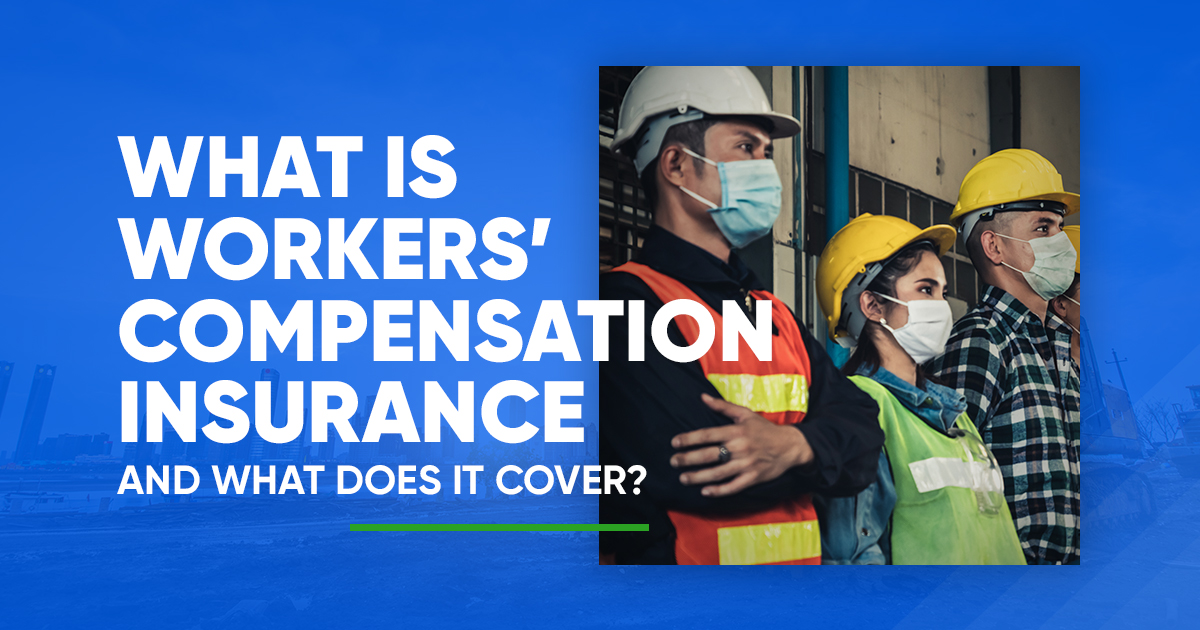Workers Compensation Insurance: The Hidden Safety Net Every Business Needs
Workers Compensation Insurance is a cornerstone of workplace protection, designed to safeguard both employees and employers. It ensures that employees who suffer injuries or illnesses related to their jobs receive proper medical care, rehabilitation, and financial assistance, while also protecting employers from lawsuits that could otherwise devastate their business. At its core, this insurance fosters a balanced relationship, guaranteeing fair treatment and stability on both sides.
When an employee gets injured on the job, the system provides coverage for hospital care, therapy, and even a portion of lost wages. This quick response not only helps the employee recover but also avoids lengthy and expensive court cases. Employers benefit by maintaining business continuity and reducing the financial risks that workplace accidents could trigger.
What Workers’ Compensation Insurance Covers
Medical Expenses
Employees injured on the job don’t have to shoulder medical bills. Workers Compensation typically covers hospital stays, emergency care, surgeries, prescriptions, and ongoing therapies. This ensures workers focus on healing rather than worrying about costs.
Lost Wages
Employees unable to work during recovery receive wage replacement. While it may not cover their full paycheck, the income support keeps households financially stable while the employee heals. This benefit is particularly crucial for families living paycheck to paycheck, as it prevents them from falling into financial hardship.
Rehabilitation and Therapy
For serious injuries requiring extended care, the insurance pays for rehabilitation programs, physical therapy, and even retraining for a different job role if necessary. For example, a construction worker who sustains a severe back injury may no longer be able to perform heavy lifting but could be retrained to take on supervisory or administrative responsibilities.
Disability Benefits
If the injury leads to partial or permanent disability, Workers Compensation provides payments based on the severity and medical evaluation. These benefits offer long-term security for employees unable to return to their original roles. In cases of permanent disability, these benefits can be paid for a lifetime, providing stability for workers and their families.
Death Benefits
In the event of a workplace death, families receive financial help that usually includes funeral costs and ongoing support for dependents. This protects families from sudden financial hardship and ensures that loved ones left behind are not burdened with immediate expenses or long-term financial insecurity.
What Workers’ Compensation Does Not Cover
Self-Inflicted Injuries
Intentional harm caused by an employee is not covered, as the system is built to address legitimate accidents or illnesses arising from job duties.
Injuries Outside of Work
Most policies exclude injuries sustained outside of work, including commuting accidents. If the injury is unrelated to workplace responsibilities, Workers Compensation does not apply.
Intoxication or Misconduct
If an accident occurs while an employee is under the influence of alcohol or drugs or while engaging in reckless behavior, claims may be denied.
Independent Contractors
Freelancers, contractors, and volunteers are usually excluded unless explicitly included in the employer’s policy. This distinction highlights the importance of knowing who counts as an “employee” under state laws.
Importance of Workers’ Compensation Insurance
Protecting Employees
It ensures workers don’t face financial devastation after workplace accidents by covering healthcare costs, income replacement, and therapy. Employees gain peace of mind knowing their livelihood won’t collapse due to an unexpected injury.
Protecting Employers
Employers benefit by reducing legal exposure. The system prevents lawsuits, saving businesses from potentially crippling financial judgments and ensuring smoother resolution of workplace accidents.
Promoting Workplace Safety
Insurance providers often reward safe workplaces with lower premiums, motivating businesses to invest in safety measures, proper training, and updated equipment.
Supporting Business Continuity
Even after accidents, operations can continue without financial disruption, since both employee needs and employer liabilities are managed under a structured framework.
Key Considerations Before Buying
State Laws and Requirements
Each state has different rules and thresholds for Workers Compensation. Employers must understand their obligations to avoid legal penalties and ensure compliance.
Payroll and Job Classification
Premiums depend on payroll size and risk levels of job categories. Higher-risk jobs, such as construction or manufacturing, lead to higher premiums compared to lower-risk office work.
Coverage Limits
Employers should evaluate the scope of coverage needed depending on workforce size and industry risks. Too little coverage can expose them to costly gaps.
Choosing the Right Provider
The insurer’s track record in handling claims, providing support, and delivering fair settlements is crucial when selecting coverage. A reliable provider can make the claims process smoother and less stressful.
Real-Life Examples
Construction Site Accident
A worker who falls from scaffolding requires surgery and weeks of rehabilitation. Medical care, wage replacement, and therapy costs are all covered, allowing the worker to focus on recovery without financial fear.
Warehouse Injury
An employee who strains their back lifting heavy equipment receives hospital care and income replacement until recovery. Without Workers Compensation, the worker might have faced unaffordable medical bills.
Office Repetitive Strain Injury
A desk worker develops carpal tunnel syndrome from years of typing. Their treatment, time off, and ergonomic support are covered, proving that injuries aren’t limited to physically demanding jobs.
Fatal Workplace Accident
If an employee dies in a workplace incident, the family receives death benefits, funeral coverage, and financial support, allowing them to grieve without immediate financial worry.
Who Needs Workers’ Compensation Insurance
Small Businesses
Even one employee creates exposure to risk. For small companies, a single claim without coverage could end operations.
Large Corporations
Bigger workforces create greater risk. Large businesses use Workers Compensation to manage liability and maintain stability while protecting thousands of employees.
High-Risk Industries
Construction, mining, and manufacturing sectors experience higher accident rates. Coverage here is vital, not optional.
Service-Based Businesses
Accidents like slips or repetitive stress injuries occur even in offices or retail shops, making coverage equally important.
Tips for Employers
Train Employees on Safety
Proactive training helps prevent accidents and reduces the number of claims filed. Employees who understand risks and prevention techniques are less likely to get hurt.
Maintain Accurate Records
Clear payroll and classification records ensure fair premium assessments and avoid disputes during claims.
Report Claims Promptly
Timely claim reporting avoids delays and disputes and ensures faster support for employees. Delays in reporting can increase costs and harm workplace trust.
Review Policies Annually
As business risks evolve, annual reviews ensure coverage remains adequate and aligned with the workforce’s needs.
Common Misconceptions
It Only Benefits Employees
In reality, Workers Compensation protects both sides by reducing lawsuits and providing financial support for recovery.
Office Jobs Don’t Need Coverage
Even office-based jobs face risks like falls, stress injuries, or accidental slips, making coverage necessary.
Health Insurance Is Enough
Health insurance doesn’t cover lost wages or disability compensation. Workers Compensation closes these gaps.
It Is Too Expensive
Premiums are manageable compared to the potentially huge costs of uncovered workplace injuries. For many small businesses, a single lawsuit could be far more devastating than the insurance premiums.
Final Thoughts
Workers Compensation Insurance is essential for businesses of every size and industry. It creates a safety net for employees while reducing legal and financial risks for employers. By complying with state requirements, selecting the right policy, and promoting workplace safety, businesses can protect both their people and their financial health. Ultimately, Workers Compensation fosters trust, security, and stability, values that every sustainable organization depends on.




